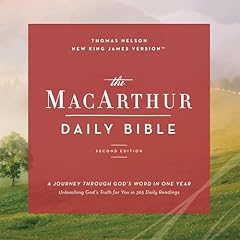
Rescuing the Gospel
The Story and Significance of the Reformation
No se pudo agregar al carrito
Add to Cart failed.
Error al Agregar a Lista de Deseos.
Error al eliminar de la lista de deseos.
Error al añadir a tu biblioteca
Error al seguir el podcast
Error al dejar de seguir el podcast
 Exclusivo para miembros Prime: ¿Nuevo en Audible? Obtén 2 audiolibros gratis con tu prueba.
Exclusivo para miembros Prime: ¿Nuevo en Audible? Obtén 2 audiolibros gratis con tu prueba.Compra ahora por $15.90
-
Narrado por:
-
Bob Souer
-
De:
-
Erwin W. Lutzer
The Reformation unfolded in the cathedrals and town squares of Europe - in Wittenberg, Worms, Rome, Geneva, and Zurich - and it is a stirring story of courage and cowardice, of betrayal and faith. The story begins with the Catholic Church and its desperate need for reform. The dramatic events that followed are traced from John Wycliffe in England, to the burning of John Hus at the stake in Prague, to the rampant sale of indulgences in the cities and towns of Germany, to Martin Luther nailing the 95 Theses to the door of the Castle Church in 1517, to John Calvin's reform of Geneva. Erwin W. Lutzer captures the people, places, and big ideas that fueled the Reformation and explains its lasting influence on the church and Western civilization.
©2016 Erwin Lutzer (P)2017 TantorLos oyentes también disfrutaron:




















Las personas que vieron esto también vieron:




Eye opening
Se ha producido un error. Vuelve a intentarlo dentro de unos minutos.
Good summary of the reformation.
Se ha producido un error. Vuelve a intentarlo dentro de unos minutos.
Great book for Protestants & Catholics
Se ha producido un error. Vuelve a intentarlo dentro de unos minutos.
This is a great story of the reformation!
Se ha producido un error. Vuelve a intentarlo dentro de unos minutos.
Reformation Fun!
Se ha producido un error. Vuelve a intentarlo dentro de unos minutos.


